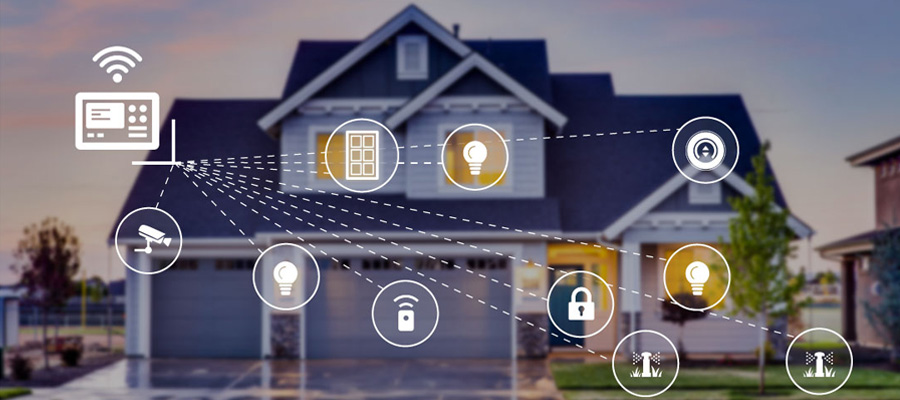
In recent years, the concept of smart homes has gained significant traction, offering homeowners a seamless integration of technology and convenience. However, beyond the convenience factor, smart homes also play a crucial role in promoting environmental sustainability. This article explores the various ways in which smart homes contribute to a greener future, from energy efficiency to waste reduction.
- Energy Efficiency:
One of the key benefits of smart homes is their ability to optimize energy consumption. Through the use of smart thermostats, lighting systems, and appliances, homeowners can monitor and control their energy usage more efficiently. For instance, smart thermostats can learn the occupants' preferences and adjust the temperature accordingly, reducing unnecessary energy consumption. Similarly, smart lighting systems can automatically adjust brightness levels based on natural light availability, further reducing energy waste. - Renewable Energy Integration:
Smart homes provide an ideal platform for integrating renewable energy sources such as solar panels and wind turbines. By harnessing clean energy, homeowners can significantly reduce their reliance on fossil fuels and contribute to a greener environment. Smart home systems can monitor energy production and consumption, allowing homeowners to make informed decisions about energy usage and storage. - Water Conservation:
Smart homes are equipped with advanced water management systems that help conserve this precious resource. Smart irrigation systems, for example, use weather data and soil moisture sensors to optimize watering schedules, preventing overwatering and reducing water waste. Additionally, smart faucets and showerheads can regulate water flow, minimizing unnecessary usage without compromising comfort. - Waste Management:
Smart homes incorporate innovative waste management solutions that promote recycling and reduce landfill waste. Smart trash cans equipped with sensors can sort and separate recyclable materials, making recycling more convenient and efficient. Furthermore, smart home systems can monitor energy usage of appliances and provide recommendations for energy-efficient alternatives, reducing electronic waste. - Indoor Air Quality:
Smart homes prioritize the health and well-being of occupants by monitoring and improving indoor air quality. Smart ventilation systems can adjust airflow based on occupancy and outdoor air quality, ensuring a constant supply of fresh air while minimizing energy waste. Additionally, smart air purifiers can detect and filter pollutants, allergens, and volatile organic compounds, creating a healthier living environment.
Conclusion:
Smart homes have emerged as a game-changer in promoting environmental sustainability. Through their energy-efficient features, integration of renewable energy sources, water conservation measures, waste management solutions, and focus on indoor air quality, smart homes contribute significantly to reducing our ecological footprint. Embracing smart home technology not only enhances convenience but also empowers individuals to make a positive impact on the environment. As we move towards a greener future, smart homes will continue to play a pivotal role in creating a sustainable and eco-friendly world.


